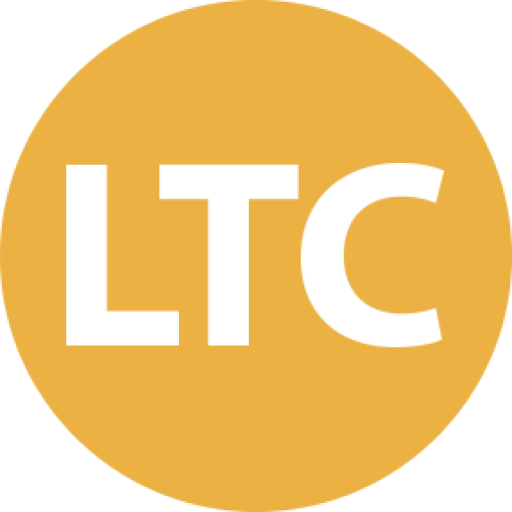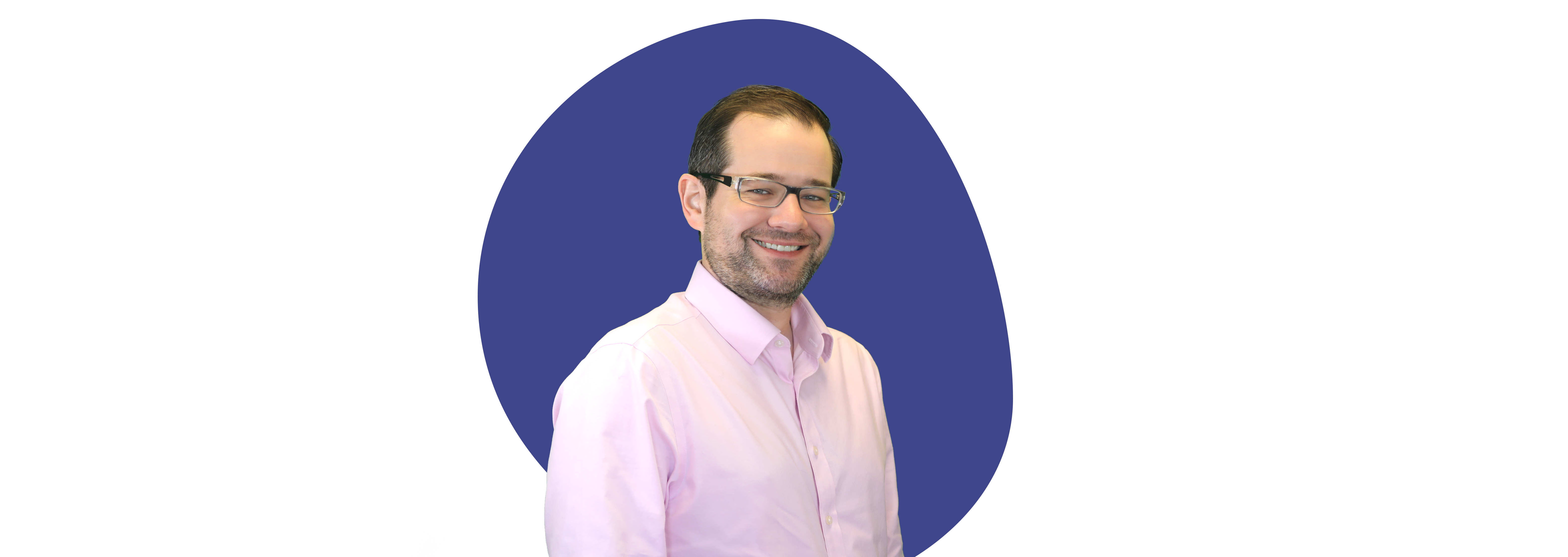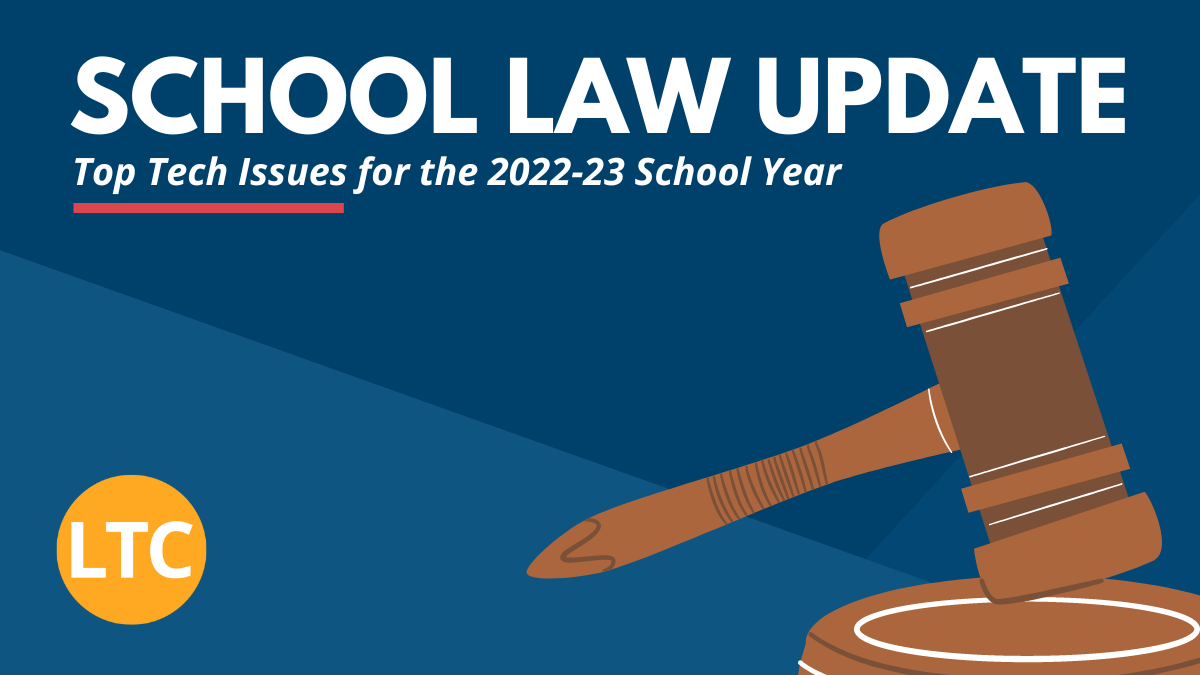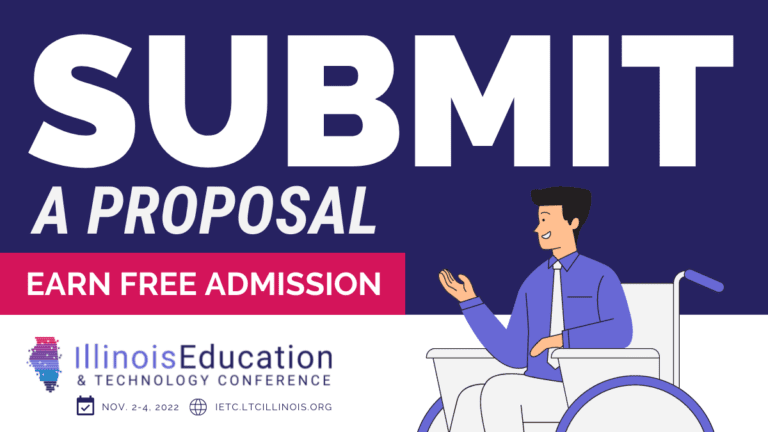Note: This article is based upon information shared during a June 14, 2022, public webinar. The information shared herein does not constitute legal advice, either on behalf of the LTC or Miller, Tracy, Braun, Funk & Miller LTD. Individual’s seeking further insight into legal issues concerning their district should consult their own legal counsel.
A new school year is just around the corner, and for school administrators, that means reading up on the latest technology-related legal issues affecting K-12 education.
Many noteworthy issues from previous school years continue to evolve, making now a great time to get up to speed and incorporate the latest developments into your district’s planning process.
Back in June, the LTC hosted attorney Brandon K. Wright of Miller, Tracy, Braun, Funk & Miller LTD. for an informative webinar about this year’s most relevant edtech legal issues. Here are some of the big-picture takeaways that your district should have on its radar this fall:
Data Privacy & SOPPA
Data privacy remains a chief concern this year, with all K-12 schools in Illinois now required to follow Illinois’ Student Online Privacy and Protection Act (SOPPA).
To ensure SOPPA’s mandates are met on all fronts, districts are encouraged to train all staff members on data privacy best practices and communicate their role’s responsibilities under SOPPA. This includes clear expectations for implementing reasonable security practices, web posting, and utilizing approved apps and digital services.
Ransomware & Cybersecurity Concerns
Hundreds of educational institutions fell victim to cyber-attacks in 2020, and the threat from malicious digital elements has only increased since. Districts need to continue utilizing cybersecurity best practices and robust backup solutions to make preventing and bouncing back from an incident less burdensome.
Staff members also have a role to play when it comes to bolstering cybersecurity in your district. Staff and faculty should receive training on several of the most emergent threats targeting educational institutions, including phishing schemes. This can prevent your team from unwittingly allowing a threat through your district’s otherwise effective cybersecurity defenses.
Students’ Privacy Rights
Districts need to establish privacy policies regarding the use of personal and school-owned devices. This can include the use of personal devices on school networks and the use of school-owned devices at home.
Districts also need to be aware that the legal environment regarding student digital privacy is still evolving. As it stands, district officials need reasonable suspicion to inspect a student’s belongings and need to limit the scope of searches based on those suspicions. However, information shared to a third party (such as a social media platform) may be accessed outside of those limitations.
Illinois School Code (105 ILSC 75/10) also prohibits school officials from compelling students or parents to unlock a private device. Districts should structure their student privacy policies accordingly.
Student Social Media Use
Last summer, the US Supreme Court issued an opinion in Mahanoy Area School District v. B.L. (2021). In their decision, the Court ruled that schools may regulate some off-campus speech (such as on social media) if it causes “substantial disruption” to the learning environment. Specific instances include cyberbullying, threats of violence, and threats to cybersecurity.
In light of the specific circumstances of this case (discussed further in a December 2021 webinar), schools are also encouraged to shape student codes of conduct to protect their institution’s interests, rather than policing student behavior online. Punishments administered under these codes should also be relative to the severity of the infraction.
Digital Accessibility
Effective August 1, 2022, Public Act 102-0238 (also known as HB 26) amends the Illinois School Code to require 3rd party curriculum content to achieve Level AA accessibility conformity, as outlined in the World Wide Web Consortium’s Web Content Accessibility Guidelines (W3C WCAG).
In light of this change, districts should routinely communicate with 3rd party curriculum content providers to ensure their accessibility features meet or exceed WCAG’s benchmarks.
Under this new state-level guidance, districts will need to make their websites, digital media, LMS, and other public-facing communications suitably accessible. More information on these requirements, as well as resources for achieving compliance, can be found on our K-12 Accessibility hub.
Staying on Top of the
Latest Legal Issues
The LTC keeps its fingers on the pulse of the latest developments in education and technology policy. Visit our Digital Leadership hub to learn more about how we can help your district leadership understand and implement new mandates throughout the school year.
We also annually publish our popular Legal Reference Guide, covering many of the new and updated laws impacting K-12 education. Download the FY23 Guide for FREE to discover insights on e-learning, reporting, funding, and State of Illinois executive orders.
This article is based on a live webinar hosted June 14, 2022. A full recording can be viewed for free on our Webinars page or on the LTC’s YouTube page.








